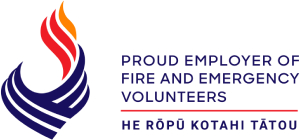Postpartum Mood Disorders
By Jemy Tomy
Types of postpartum mood disorders are baby blues; postpartum depression; postpartum anxiety; postpartum psychosis; postpartum OCD; postpartum PTSD.
It is possible to develop a mood disorder immediately after giving birth. Symptoms can emerge any time within the first 12 postpartum months. For some, mood disorders first appear during pregnancy and then worsen postpartum. There is a period of normal adjustment after having a baby when women may feel physically and emotionally overwhelmed.
Approximately 50 percent to 80 percent of new mother’s experience mood swings during the first two to three weeks after giving birth. It is often called a period of postpartum “baby blues.” Signs of baby blues are crying, often for no reason; tiredness; insomnia; poor mental clarity; nervousness around baby; mood irritation and not feeling like yourself. These symptoms fluctuate but can pass within a few days or weeks with patience, good self-care (sleeping, eating, hydrating etc.) and positive support from family and friends.
Depression that occurs during postpartum is believed to be the most common mood disorder in postpartum people. Research indicates postpartum depression affects 10-15%. Causes vary from a history of depression or other mental health problems; relationship difficulties; lack of social support; onset of depression during pregnancy; hormone problems and life stresses.
Birth complications such as a caesarean delivery can lead to experiencing ‘birth trauma;’ if the birth did not live up to expectations, and if the baby has health problems.
Risk factors after birth are ongoing postnatal blues; sleep problems; a fussy baby with feeding, colic, or reflux.
Postnatal depression can vary from person to person but signs to look out for are feeling low, sad, or depressed, feeling empty or nothing at all. Experiencing pain that is hard to describe or locate. Crying for no reason. Feeling sad or low all the time. Others have periods of temporary improvement that does not last longer than a day or two. Losing interest or pleasure in usual activities; feeling irritable or angry for no reason. These are the main signs something is wrong. It can make dealing with caring for a young baby more difficult and affect other relationships.
The most common change is reduced sleep, with difficulty getting to sleep, disturbed sleep, and/or waking early and being unable to return to sleep. While it is usual for new parents to have their sleep interrupted by a waking baby, people with postnatal depression often find they cannot sleep even if the baby is settled and lay awake worrying about the next feed or the next day. These feelings and a lack of connection with baby can cause shame and mean people are too ashamed to ask for help or share how they are feeling.
Appetite changes, either not eating and losing weight or increasing weight with no pleasure from eating is also a sign; as is decreased energy, tiredness, and fatigue. You can feel the smallest and simplest things are impossible. This makes caring for a baby more difficult.
Physical slowing or agitation often comes with severe postnatal depression. You may sit in one place for periods and move, respond, and talk very slowly; or you may be unable to sit still.
A lack of self-confidence, feeling worthless or guilty may cause you to withdraw from friends and whanau. You may also feel you are a bad parent or doubt you can care for your baby.
Treatment of postnatal depression can involve different things that can be tailored to individual needs. Doctors can recommend treatment options to suit. Always talk to a doctor before stopping medicine and work with them to identify solutions.
Supportive counselling is an effective treatment for milder forms of postnatal depression – in fact, it works as effectively as an antidepressant medication. More specific therapies such as cognitive behaviour therapy, (CBT) is very effective to help people recover from postnatal depression. It teaches you to use your skills and resources to cope and recover.
Education about postnatal depression can be extremely important to help the new parent and their family/whanau and supporters to understand and help recovery. Talking about it with friends and family/whanau helps.
Your doctor may prescribe antidepressants such as Bupropion, Fluoxetine, Paroxetine, Sertraline. Finding the right medication is a matter of trial and error – there is no way to predict which medication will be effective and tolerated by any one person.
If prescribed medication, you are entitled to know the names of the medicines; the symptoms they treat; how long it will be before they take effect; how long you will have to take them and what their side effects (short and long-term) are.
If you are breast feeding no medication is entirely safe. Before making any decisions about taking medication talk with your doctor about the potential benefits and problems.
Do not stop taking antidepressants suddenly without medical advice.
Certain complementary therapies may enhance your life and help you to maintain wellbeing. This may include hypnotherapy, yoga, exercise, relaxation, massage, and aromatherapy. When considering taking a supplement, herbal, or medicinal preparations, consult your doctor to make sure it is safe and will not harm your health or interfere with any other medications you are taking.
Help yourself by starting small – open a window, close your eyes, and listen to the birds singing. Slowly build up to bigger things and try to notice what makes you feel better. Make a list of things that feel good and keep it on your phone, your diary, or the fridge. If you are struggling, check your list and pick one thing you can do immediately to help.
Stories of other people who have found a way through postnatal depression may help. Identify your early warning signs or triggers by keeping a mood diary. Identify and reduce stressful activities; ensure you are eating healthy food; do relaxation exercises, yoga, meditation, or massage.
Getting enough sleep or sleeping when you can is important. Spend time in nature – even just sitting in the sunshine listening to the birds singing for a few moments can be helpful. Get exercise, peer support and/or support from people with the same background as you e.g., age, ethnic group, sexual orientation.
Many people find having a written plan developed together with a GP/psychiatrist can help them to feel in- control when difficult feelings return.
Make sure others (i.e., family/whanau, partners, and community mental health staff) are aware of your plan and what you would like to happen if you become unwell again. Plans can detail (in your own words) the symptoms, and what triggers these feelings and what helps. They can also list the numbers of support people, helplines and more, and outline what you would like to happen if you need professional support. The family/whanau support and involvement you need is up to you. Family/whanau may be struggling to know how to help. If there are specific things that would help you, try asking for them. Say: “it would be really helpful if you helped me fold the laundry/washed the dishes/hold the baby while I shower/take the other kids out for a bit.”
Anxiety is an emotion that everyone faces at different points in their life. Anxiety can be a more serious concern when a feeling of worry, nervousness or unease about a specific event or outcome causes a person such distress that they have difficulty functioning in their daily life. Approximately 10 percent of pregnant and postpartum women experience significant anxiety symptoms. Research has shown anxiety symptoms are more common than depressive symptoms during and following pregnancy. Many parents do not recognise clinical anxiety as the problem.
Symptoms of anxiety include constant worry; a feeling something bad is going to happen; trouble falling asleep or sleeping too much; loss of appetite or overeating (weight loss or gain); restlessness or inability to sit still; physical symptoms like dizziness, nausea, headaches, racing heartbeat and breathing fast. Feelings of fear or uneasiness.
Postpartum psychosis occurs in 1 to 2 out of every 1,000 deliveries. The onset is usually sudden, most often within the first 2 weeks postpartum. Postpartum psychosis is considered the most severe postpartum mood disorder. Friends or family may notice it is hard to communicate with a person with psychosis as they may be out of touch with reality, have mood swings and hallucinations.
Symptoms of psychosis include extreme confusion; hopelessness; inability to sleep (even when exhausted), or excessive energy and not needing to sleep; refusing to eat; distrusting other people; seeing things or hearing voices that are not there; thoughts of hurting yourself, your partner or baby.
These symptoms are often associated with hormonal changes and can occur in pregnancy, after the time of birth, at the time one stops breastfeeding, or once a woman begins to menstruate in the months that follow birth.
Paying particular attention to one’s self-care during these transitional periods and hormonal changes throughout the first year postpartum is of utmost importance to avoid symptoms of distress.
Postpartum obsessive-compulsive disorder (OCD) is a type of severe anxiety disorder. OCD is an often misunderstood and misdiagnosed disorder that affects as many as 3-5 percent of new mothers.
Risk factors for postpartum OCD include a personal or family history of anxiety or OCD. Symptoms of OCD include obsessive and upsetting thoughts (often related to the baby); compulsive behaviours to reduce fears and obsessions (e.g., cleaning, checking, counting, reordering things); a sense of horror about the obsessive thoughts; fear of being left alone with the baby; heightened alertness and preoccupation with protecting the baby.
Approximately 9% of women experience postpartum post-traumatic stress disorder (PTSD) following childbirth. Most often, the illness is caused by a real or perceived trauma during delivery or postpartum. These traumas could include unplanned C-section; use of vacuum extractor or forceps to deliver the baby; baby going to NICU; feelings of powerlessness, poor communication and/or lack of support and reassurance during the delivery.
Women who have experienced a previous trauma, such as rape or sexual abuse, a severe physical complication or injury related to pregnancy or childbirth, such as severe postpartum haemorrhage, unexpected hysterectomy, perineal trauma are also at a higher risk for experiencing postpartum PTSD.
All these conditions are treatable and can be improved by including husbands, partners, family, or friends as part of the solution; talk and express feelings; ask for help; talk to a doctor/maternity carer. Join a support group; get some sleep; take time out; exercise; eat healthy; avoid alcohol; try music,
yoga, and meditation.
Back to Blog








